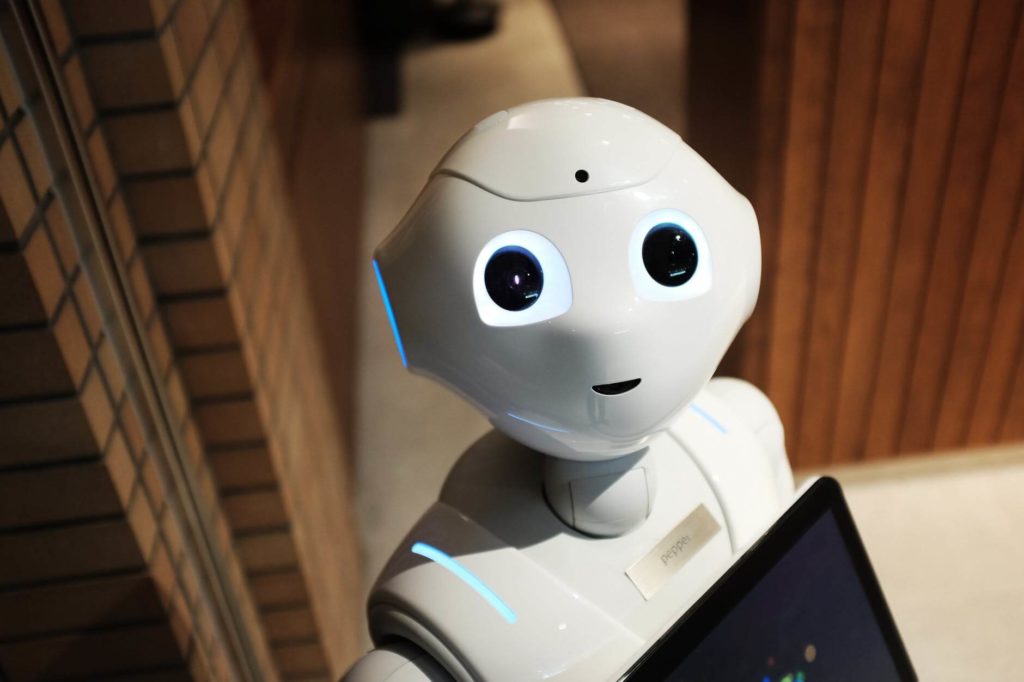Artificial intelligence – what does it mean in the era of terminological carelessness?
A king’s ransom to whomever has no immediate reaction to the term „artificial intelligence” while browsing a website of one of the leading IT companies, an information portal, or even an online store with electronics. One would like to paraphrase the joke told by Ronald Reagan after his visit in the Soviet Union: „Have we really achieved it, the artificial intelligence? Is this it? Is this now? Full artificial intelligence?” – the man asks. „Oh hell no, things are gonna get much worse” – says the other.
What is the Turing test today?
While Alan Turing was not exactly on good terms with the British authorities, he is now given the credit he deserved. Turing is mostly known for his contribution to decrypting the German encryption devices during World War 2. However, he played an invaluable role in the development of cybernetics – information technology, as well as the theory of artificial intelligence. I.e. due to the so called Turing test we are actually able to give an answer to the question posed in the aforementioned joke.
Turing assumed that the human is alone capable of evaluating whether we are dealing with an AI or not. If in contact with an artificial intelligence, the human will be incapable of determining that he/she is actually not in contact with a real person but with software, then we can speak of an artificial intelligence. That’s how Turing saw it, and if we adopt his point of view we can say that we are already in possession of an artificial intelligence. A great example is the AlphaGo Zero software, which already beats human players (possibly unaware that they are competing against a machine) in public Starcraft II matches.
Artificial intelligence or an artificial cognitive process?
The AlphaGo Zero artificial intelligence developed by the DeepMind company currently owned by Google, is one of the most advanced achievements in the area of artificial intelligence. However, the term is presented everywhere even in most trivial scenarios. For example, the image recognition algorithms that adjust the camera properties in smartphones are called artificial intelligence, for no good reason. In this case you could also call sound recognition apps, e.g. Shazam recently acquired by Apple, to be an artificial intelligence.
Does recognition equal intelligence? Or maybe in regard to song recognition based on their fragments, or image recognition we should speak not of artificial intelligence, but of an artificial cognitive process? Such recognition is an artificial sense backed by software that compares images and sounds with an enormous machine learned database of other images and sounds. Probably, being influenced by sci-fi literature and cinema we began to expect the artificial intelligence to be like ours, the human intelligence.
Blindsight and Octopi
Our current achievements suggest a different direction. We create some appearances – we design humanoid robots and intelligent assistants that have warm human voices. However, artificial intelligence can have a lot more in common. Not with humans, but with… Octopi. The unusual nervous system of these incredibly intelligent cephalopods allows their tentacles to be autonomous to a high degree. They can perform complicated operations while they as well as the octopus itself, being only partially aware of the fact.

The process was creatively expanded by Peter Watts (a marine biologist), in his novel titled „Blindsight”. The novel tells a story of a confrontation with an alien civilisation that seems to be very intelligent: it is able to construct star ships and is able to perform fake communication with humans, based on the Chinese room argument. These representatives of the alien civilisation clearly inspired by octopi, do not know that are constructing star ships or faking communication. They are incredibly intelligent, but they are not aware. Same as our artificial intelligences. At least for now.
Artificial intelligence, actual bull
These inquiries are far from the current trivial approach to the issue of artificial intelligence. In light of this confrontation the results of research conducted by MMC Ventures in March 2019, turned out interesting. The activity profile of 2,8 thousand of European start-ups whose managers claimed they were working on the development or use of artificial intelligence. Then, the analysts took a closer look at their activity, they also spoke to the start-ups’ staff. It turned out that actually, two-thirds of the aforementioned companies had nothing to do with artificial intelligence.
Author:
Agnieszka Szatanowska
Strategy and Project Management Department Director




